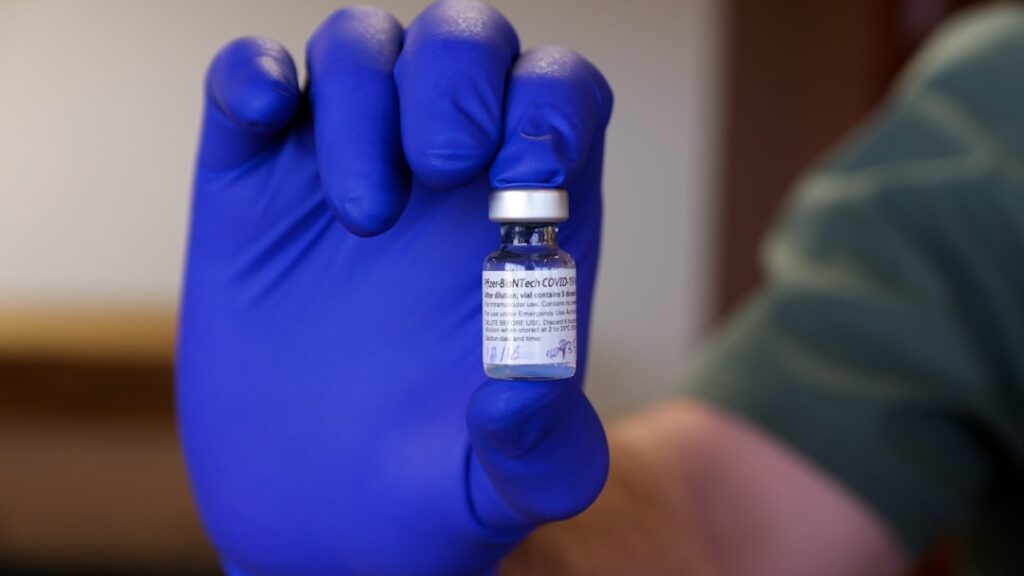The Importance of Hydration: Your Ultimate Health Guide
Do you ever find yourself dragging through the afternoon, battling a persistent headache, or struggling to focus, even after a full night’s sleep? It’s a common scenario in our fast-paced lives, and the surprising culprit might be something as fundamental as not drinking enough water. While we often focus on diet and exercise, the often-overlooked importance of hydration profoundly impacts every single system in your body. It’s not just about quenching thirst; it’s about fueling your brain, maintaining energy levels, protecting your organs, and supporting overall vitality. Imagine unlocking a simple, free, and incredibly effective tool for better health that’s always within reach – that tool is water.

The Dehydration Dilemma: More Than Just Thirst
Many of us live in a constant state of mild dehydration without even realizing it. Our busy schedules, reliance on dehydrating beverages like coffee and sugary drinks, and simply ignoring our body’s subtle cues contribute to this widespread problem. While extreme dehydration is a medical emergency, even slight fluid imbalances can significantly impact daily functioning. It’s not just an inconvenience; it’s a silent drain on your energy, mood, and cognitive abilities.
Understanding the Causes of Insufficient Fluid Intake
Why do so many struggle to drink enough water?
- Busy Lifestyles: Forgetting to drink amidst meetings, deadlines, and errands.
- Misinterpreting Thirst: Often, by the time you feel thirsty, you’re already mildly dehydrated. Our bodies sometimes confuse thirst signals with hunger.
- Lack of Access: Not having water readily available, especially in environments where other beverages are more common.
- Preference for Other Drinks: Choosing sodas, juices, or coffee over plain water due to taste or perceived energy boost.
- Environmental Factors: Hot weather, intense physical activity, and even dry indoor air increase fluid needs, which are often not met.
The Far-Reaching Impacts of Dehydration
The consequences of inadequate hydration extend far beyond a dry mouth:
- Cognitive Decline: Studies show that even mild dehydration (1-3% body weight loss) can impair mood, concentration, memory, and reaction time. A review published in the Journal of Nutrition highlighted how dehydration negatively impacts cognitive performance, particularly in tasks requiring attention and motor coordination.
- Reduced Physical Performance: For athletes and active individuals, even a 1-2% drop in body weight from fluid loss can lead to significant reductions in endurance, strength, and overall athletic output.
- Headaches and Migraines: Dehydration is a common trigger for tension headaches and can exacerbate migraines.
- Fatigue and Low Energy: When you’re dehydrated, your blood volume decreases, making your heart work harder to pump oxygen and nutrients to your cells. This extra effort can leave you feeling sluggish and tired.
- Digestive Issues: Water is crucial for healthy digestion and preventing constipation. Insufficient intake can lead to a sluggish digestive system.
- Skin Health: Dehydration can make your skin appear dull, dry, and less elastic, potentially accentuating fine lines.
- Long-Term Health Risks: Chronic dehydration can contribute to kidney stones, urinary tract infections, and other serious health problems over time. The National Institute of Diabetes and Digestive and Kidney Diseases (NIDDK) emphasizes water’s role in preventing kidney issues.

The Science of Optimal Hydration: Why Water is Your Best Health Tool
Water is more than just a beverage; it’s an essential nutrient that participates in virtually every bodily function. Understanding its critical roles can underscore the true importance of hydration.
Fundamental Physiological Roles of Water
Your body is composed of about 55-78% water, depending on age and body composition. This isn’t just filler; it’s the medium for life:
- Nutrient Transport: Water carries nutrients, oxygen, and hormones to all cells in the body.
- Waste Removal: It flushes out toxins and waste products from your kidneys, liver, and other organs.
- Temperature Regulation: Through perspiration, water helps dissipate heat, maintaining a stable body temperature.
- Lubrication and Cushioning: It lubricates joints, protects sensitive tissues (like the spinal cord and brain), and helps form saliva and mucus.
- Cellular Function: Water is vital for cellular structure and metabolic reactions.
The World Health Organization (WHO) consistently highlights access to safe drinking water as fundamental for human health, underscoring its role in preventing numerous diseases globally.
Cognitive Enhancement and Mood Stability
Beyond physical effects, staying well-hydrated significantly influences your mental landscape. Dr. Sarah Johnson, a neuroscientist specializing in human performance, often emphasizes, “The brain, being about 75% water, is acutely sensitive to even minor fluid deficits. Maintaining optimal hydration is not just about physical health; it’s a cornerstone of cognitive resilience and emotional well-being.” Indeed, research from a 2018 study published in Nutrients demonstrated that mild dehydration impairs a range of cognitive functions, including attention, executive function, and motor coordination, alongside increased feelings of anxiety and fatigue.
Supporting Physical Performance and Recovery
Whether you’re an elite athlete or simply enjoying a brisk walk, adequate water intake is non-negotiable. Dehydration can lead to muscle cramps, dizziness, and reduced stamina. Water helps transport glycogen (stored energy) to muscles, facilitates protein synthesis for muscle repair, and helps cool the body during exercise, preventing heat stress. Post-exercise, fluids are crucial for replenishing lost electrolytes and aiding in muscle recovery.
Beyond the “8 Glasses”: Common Myths About Water Intake
The advice surrounding hydration can sometimes be confusing. Let’s debunk some common myths that might be hindering your efforts to stay properly hydrated:
- Myth 1: Everyone needs exactly eight glasses of water a day.
Reality: While a good general guideline, individual needs vary greatly based on activity level, climate, diet, health status, and body size. The Mayo Clinic suggests around 15.5 cups (3.7 liters) for men and 11.5 cups (2.7 liters) for women daily, including fluids from food, but stresses listening to your body.
- Myth 2: Thirst is the only reliable indicator of dehydration.
Reality: Thirst is a late signal. By the time you feel thirsty, you’re already likely mildly dehydrated. It’s better to drink proactively throughout the day.
- Myth 3: Coffee and tea don’t count towards your daily fluid intake.
Reality: While caffeinated beverages have a mild diuretic effect, they do contribute to your overall fluid intake, especially in moderate amounts. However, water remains the best choice for pure hydration.
- Myth 4: Only plain water hydrates you effectively.
Reality: While water is king, many foods, especially fruits and vegetables (e.g., watermelon, cucumber, oranges), have high water content and contribute significantly to your hydration levels. Electrolyte-rich drinks can also be beneficial during intense exercise or illness.

Practical Strategies for Cultivating Optimal Hydration Habits
Knowing the importance of hydration is one thing; consistently achieving it is another. Here are evidence-based, practical strategies to weave better hydration into your daily routine, drawing on insights from psychology and behavioral science:
Mindful Drinking: Making Water a Conscious Choice
Instead of drinking reactively, cultivate a proactive approach:
- Start Your Day Hydrated: Drink a glass of water immediately upon waking. This kickstarts your metabolism and rehydrates your body after hours of sleep.
- Pair Water with Activities: Use habit stacking. Drink a glass of water before each meal, after brushing your teeth, or whenever you get up to walk around.
- Set Reminders: Use a simple timer on your phone or a hydration app to prompt you to drink throughout the day.
Making Water More Appealing
If plain water isn’t exciting, try these tricks:
- Infuse Your Water: Add slices of fruit (lemon, lime, berries, cucumber) or herbs (mint, basil) for natural flavor without added sugar.
- Try Sparkling Water: For those who enjoy carbonation, plain sparkling water can be a refreshing alternative. Be mindful of added sugars in flavored varieties.
- Temperature Matters: Experiment with water at different temperatures – some prefer ice-cold, others room temperature.
Leveraging Technology and Environment
Modern tools can be powerful allies:
- Visual Cues: Keep a reusable water bottle within sight on your desk, in your car, or wherever you spend most of your time. Seeing it acts as a constant reminder.
- Smart Water Bottles & Apps: Devices like HidrateSpark or apps like WaterMinder track your intake and send reminders, making hydration a game.
- Batch Preparation: Prepare a pitcher of infused water in the morning and keep it in the fridge for easy access throughout the day.
Hydration Through Food and Beyond
Remember that food contributes to your fluid intake:
- Eat Your Water: Incorporate water-rich foods like fruits (watermelon, strawberries, oranges, grapefruit) and vegetables (cucumber, lettuce, celery, bell peppers) into your diet. Soups and broths are also excellent sources.
- Electrolyte Balance: For prolonged exercise or in hot weather, consider natural electrolyte sources like coconut water or a pinch of sea salt in your water, under guidance from a health professional.
Case Study: Sarah’s Transformation Through Better Hydration
Sarah, a 34-year-old marketing manager, constantly battled afternoon slumps and dull headaches. She relied heavily on coffee to get through her workday, which only provided a temporary boost before the inevitable crash. After attending a corporate wellness workshop led by nutritionist Mark Davies, she decided to focus on her hydration. “Mark explained that my fatigue wasn’t necessarily a caffeine deficiency, but potentially a water one,” Sarah recounts. Davies emphasized a personalized approach, suggesting Sarah track her fluid intake and aim for at least 2.5 liters daily, mostly plain water, consumed consistently. Sarah started by keeping a large water bottle at her desk, setting hourly alarms on her phone, and adding lemon slices to her water. Within two weeks, she noticed a remarkable difference. Her headaches became rare occurrences, her afternoon energy dips significantly lessened, and she found herself able to concentrate better during long meetings. “It felt like I’d unlocked a secret energy source,” she shared. “It was so simple, yet so profound.”
Hydration for a Thriving Life: Your Body’s Essential Elixir
Ultimately, understanding and acting upon the importance of hydration isn’t just about avoiding negative symptoms; it’s about actively pursuing a higher quality of life. It’s about feeling more vibrant, thinking more clearly, performing better, and supporting your body’s incredible capacity for health and healing. Every cell, every organ, every system relies on water to function optimally. By making conscious choices to hydrate well, you’re investing in your immediate well-being and long-term health, building a foundation for a truly thriving existence.
Embrace water not as a chore, but as the essential elixir your body craves. Start small, be consistent, and observe the transformative power it holds. Your healthier, more energetic self is just a few sips away.
About the Author
Dr. Elias Vance is a Board-Certified Public Health Specialist with over a decade of experience in preventive medicine and wellness program development. Holding a Ph.D. in Nutritional Sciences from the University of California, Berkeley, Dr. Vance is passionate about translating complex scientific research into actionable, everyday health strategies. His work focuses on empowering individuals to make informed choices that lead to sustainable well-being, with a particular emphasis on foundational health pillars like hydration and balanced nutrition.





